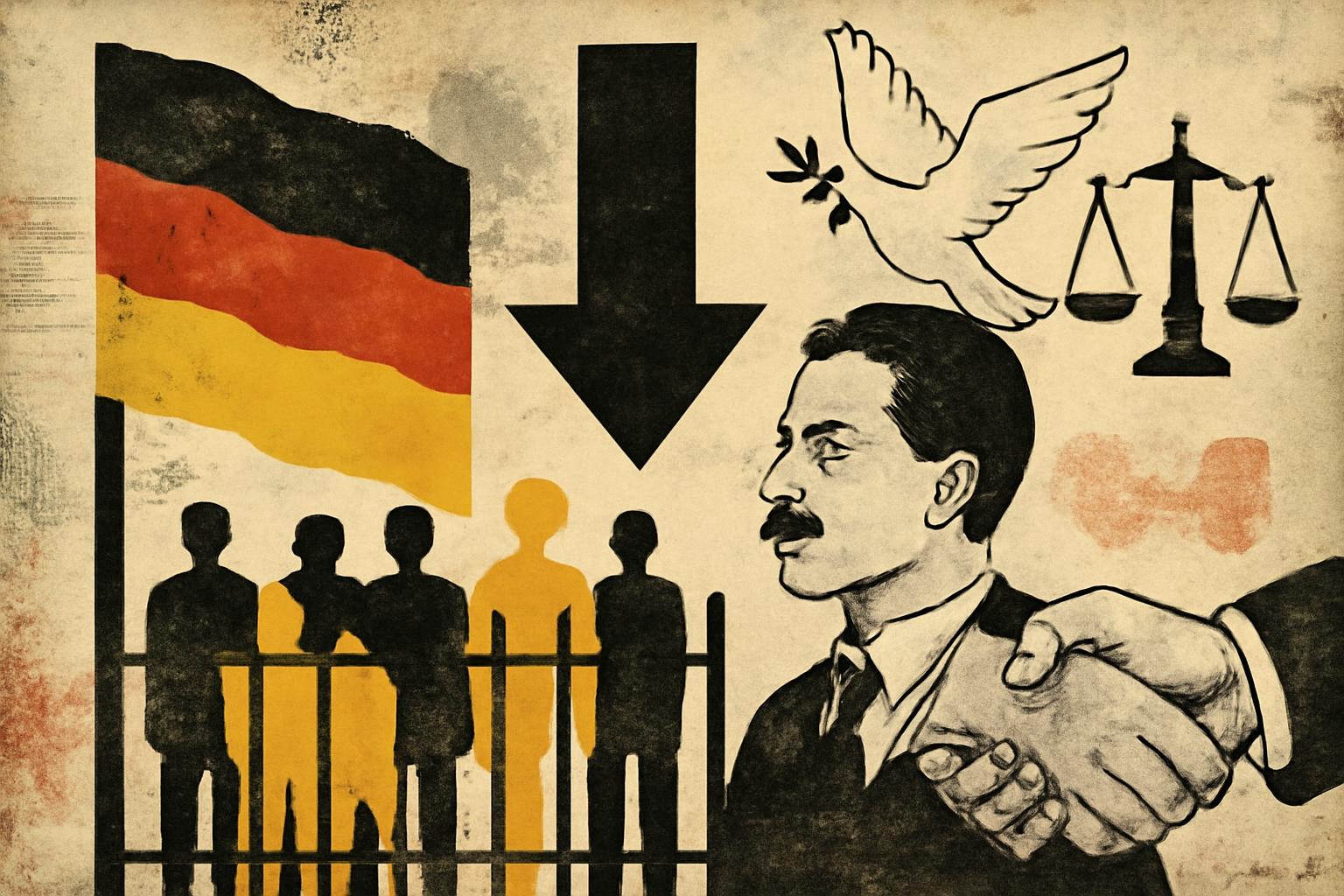Germany’s August asylum numbers are tiny compared with a year ago: 7,803 first-time applications, roughly 60 percent below the 18,427 of August 2024. The trend has been down since last autumn, with only normal fluctuations. The ruling coalition has tightened asylum laws to speed deportations, and border controls have been extended to all borders. Since then the Federal Police have sometimes turned people away at the border; on 2 June 2025, Dobrindt claimed 660 rejections and 12,000 prevented illegal entries. He calls the decline a success of his migration policy, a claim echoed by Bild. Afghanistan has returned to the top country of origin, not Syria, with researchers noting that multiple factors drive asylum applications, including border controls and regional stabilization efforts.
From a libertarian perspective, the whole framework reveals the core problem: the state asserts a monopoly on movement and decides who may cross the line, under the banner of “immigration policy,” “security,” or “humanitarian concern.” But liberty is not a banquet the state serves by compulsory measures; it is the condition of individual sovereignty, defended not by coercive gatekeeping but by the rule of law that limits coercion and protects rights.
Hayek on spontaneous order and the limits of central planning. The attempt to “manage” migration with tighter borders and selective turnbacks is a classic example of political planning trying to micro-manage human action. The price signals, incentives, and flows that would naturally optimize labor, capital, and humanitarian outcomes are global and dispersed. Centralized controls distort those signals, create black markets and perverse incentives (smuggling, false documentation, trafficking), and inevitable administrative errors metastasize into coercive deportations. The normalization of turning people away at the border is not a victory for law; it’s a bureaucratic workaround that substitutes political will for the unplanned order of voluntary exchange. The only robust response is to shrink the state’s role in movement altogether and rely on the spontaneous cooperation of private institutions and individuals to address needs.
Nozick on rights and the minimal state. The only legitimate function of a state, in Nozick’s frame, is to protect individuals from force, theft, and fraud. Deportations and border turnbacks are coercive intrusions into the liberty of would-be movers and the owners of property and communities who would otherwise negotiate voluntary arrangements across borders. A rights-respecting order does not compel people to stay or to go; it protects the right to exit and the right to enter under voluntary terms. Beyond that, any policy that treats immigrants as mere subjects of redistribution or as political pawns is incompatible with a rights-based framework. If a state is to exist at all, it must be the night-watchman that guards against aggression, not a planner of who may breathe the air of a given jurisdiction.
Rand on individual rights and the moral case against coercive control. Immigrants are agents pursuing their own rational self-interest, trading with others, forming voluntary associations, and seeking better lives. The moral condemnation of coercive controls—border quotas, deportations, and the machinery of turning away—rests on the primacy of the individual. The state’s job is not to dictate who belongs by fiat but to protect rights and to refrain from redistributing others’ property or coercing voluntary exchanges. Humanitarian aid and charitable acts are legitimate expressions of voluntary virtue, not compulsory public welfare. A free society does not outsource morality to the state; it dissolves the coercive apparatus that claims to “save” people through forced exclusion.
What to do in practical terms, if one is serious about liberty? End border coercion and all policy apparatus built on it. Withdraw the state from managing asylum as a matter of public policy and devolve to private institutions: charities, faith-based organizations, mutual-aid networks, voluntary associations, and market solutions for humanitarian aid and shelter. Let people move where they wish, and let private actors—employers, communities, philanthropists—coordinate with those who are harmed or helped by migration, not with bureaucrats who pretend to compute the “right” number of entrants. Reframe security as protection of individuals’ rights, not as control over who may cross a line.
The trendlines and rhetoric of “success” in hardened border politics reveal the same libertarian truth: coercive state control over movement is an instrument of power, not a path to justice. The system should be rolled back to its rightful function—protecting rights—while the moral economy of voluntary charity and civil society replaces forced management of human life.
